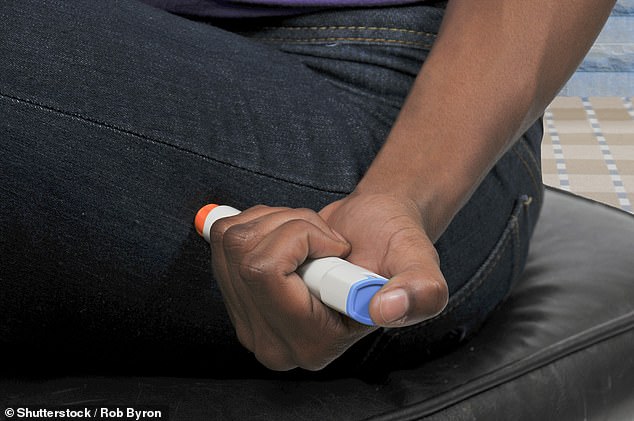Popular food delivery app Just Eat has issued an urgent warning to customers in response to contamination of a large number of food products.
Several products containing traces of mustard contain undeclared peanuts, posing a danger to allergic consumers.
Powdered mustard and flavoring are common ingredients in numerous prepackaged sauces, dressings, salads, and sandwiches sold on the delivery app.
Just Eat’s warning, which has now been issued to British and Irish customers, follows a similar alarm from food safety regulators in both countries.
Just Eat’s warning, which has now been issued to British and Irish customers, follows a warning from food safety regulators in both countries.

Several products containing mustard, mustard powder or mustard flour contain undeclared peanuts, posing a danger to any allergic consumer.
Britain’s Food Standards Agency (FSA) has traced the ingredients of contaminated mustard to three Indian producers who supply UK companies, which in turn supply products to a large number of British restaurants and takeaways.
Just Eat has repeated this warning to its customers directly via an email saying: “The Food Standards Agency has made us aware that they are warning people with a peanut allergy to avoid eating foods that contain or may contain mustard. powdered mustard or mustard flour, because these ingredients may have been contaminated with peanuts.
‘These ingredients can be found in foods such as sauces, salads and packaged sandwiches.
‘The FSA is working hard to identify products that may have been contaminated with these mustard ingredients due to the severity of some allergic reactions to peanuts.
“Therefore, as a precautionary measure, we wanted to ensure that our Just Eat customers are aware of this situation so that people with peanut allergies have up-to-date information about the potential risk and can take steps to stay safe.”
He continued: While the FSA resolves this situation, when ordering food through Just Eat, as well as checking for peanut-based ingredients, we strongly advise our customers with a peanut allergy to contact the restaurant, cafe or takeaway to ask if any of their products contain mustard.

About one in 50 children and one in 200 adults in the UK have a peanut allergy. Allergy sufferers who accidentally consume peanut products may need to use an emergency injector like the one pictured.
“Rest assured, food businesses have a legal obligation to provide this information to customers and should understand your concerns.”
Mustard is itself an allergen for some people, meaning British companies are legally required to declare its use in food.
As of Sunday, the FSA issued 66 product recalls in the UK in relation to peanut contamination.
Charity Allergy UK chief executive Simone Miles said the contamination will worry many people with peanut allergies, as well as their families.
“We understand the concern and anxiety this research may cause for those suffering from food allergies, especially as it further limits already restricted food options,” she said.
‘This is a challenging and frustrating situation, but the safety of the allergy community must come first.
‘We strongly advise anyone with a peanut allergy to follow the FSA’s advice and avoid any food containing mustard until further notice. It is essential not to take unnecessary risks with your health.’
About one in 50 children and one in 200 adults in the UK have a peanut allergy.
The number of sick people has been increasing for years in a trend that some experts suspect is related to a hyperhygienic society that potentially weakens children’s immune systems.
Experts estimate that 10 Britons die each year from a food allergic reaction, and 5,000 people are hospitalized with severe reactions.
Allergies can cause a variety of symptoms, but the most serious is a dangerous inflammation of the airways called anaphylaxis.
This can make breathing difficult or even impossible and can cause the body to go into a cardiac emergency such as cardiac arrest due to lack of oxygen.
Children with allergies are considered to be at special risk for severe reactions because, due to their smaller body size, small amounts of allergens cause larger reactions.
Allergies are also often discovered in childhood, meaning parents may not have an emergency injection on hand if an allergic reaction occurs.
Heartbroken families of those who have lost children to allergic reactions have repeatedly called for an allergy tsar to improve NHS services and allergy awareness, to prevent avoidable illness and death.

